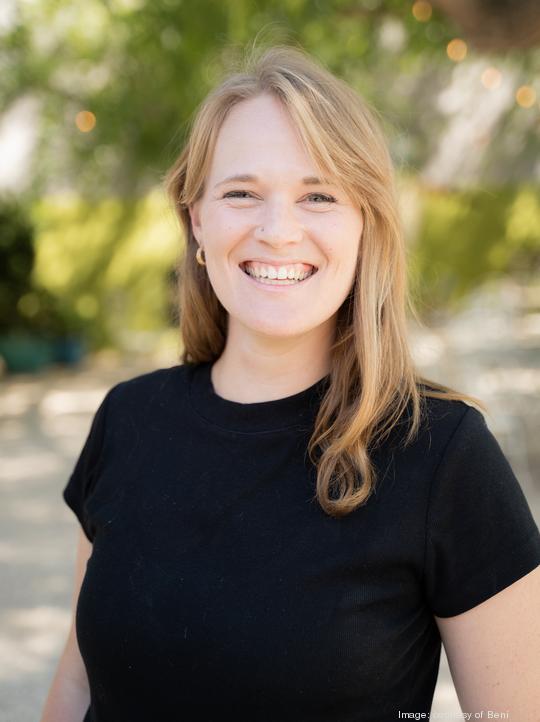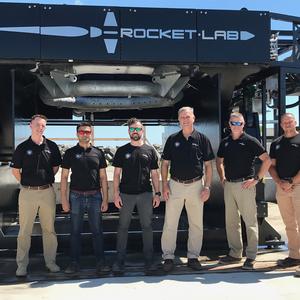
When Sarah Pinner was getting her MBA at Northwestern University, she found herself talking with several friends about their desire to shop secondhand, but failing to do so because they all felt it would be too time consuming to find exactly what they were looking for.
So she and one of her friends from Santa Barbara created Beni, an AI-powered browser extension that intercepts online shopping searches and directs users to the same products on resale marketplaces.
Beni, which is currently free to use, instantly shows shoppers the best resale listings while they shop for their favorite brands online.
The startup was incorporated in Santa Barbara in 2021 and launched the service this September. The target demographic, to start, is women 18 to 35.
To fuel growth, Beni recently closed a $4 million seed round led by Buoyant Ventures.
Pinner's co-founder Celine Mol, a software engineer, serves as CTO.
Circular fashion economy
The circular fashion economy, otherwise known as the resale or secondhand market, caught the business world's eye after Poshmark’s recent acquisition by Naver for $1.2 billion. Poshmark is a marketplace to buy and sell new and used fashion, home goods and electronics.
The global secondhand goods market is expected to grow by 24% this year, according to a recent ThredUp survey conducted by GlobalData. The report also estimates that the U.S. secondhand market will more than double by 2026, reaching $82 billion.
Apparel resale is growing 16 times faster than primary retail, said Pinner, who serves as CEO. A contributing factor may include inflation, she added. As prices go up and some people have less disposable income, resale becomes "even more desirable as a way to save money," she said.
And there is “more quality resale inventory than ever before,” she added.
“That said, search-and-discovery is still a huge point of friction."
Competition
Beni tries to make it easier by meeting shoppers exactly where they are, at the precise time they’re shopping online, with its free browser extension. It aggregates listings across 30-plus resale marketplaces.
Gently is one competitor. It’s an online hub that enables shoppers to access the entire resale market.
Beni differentiates itself from the competition by using AI to find “relevant secondhand alternatives, based on the product attributes on the page itself,” Pinner said.
“Resale data is very messy and so it is very hard to find what you’re looking for using just a keyword search, even if you are searching on (other aggregated sites),” she said.
Funding
The co-founders got initial grants and awards from competitions and from Northwestern’s business school, Pinner said. They then raised a $1 million pre-seed round in late 2021 from venture funds and angels.
The recent $4 million raise will be used to grow Beni’s users and product development, including hiring more team members. Along with lead investor Buoyant Ventures, other backers include Better Ventures, XYZ Venture Capital, Chingona Ventures and Starting Line.
In total, Beni has raised $5 million in equity financing.
Beni is not only female-founded, Pinner said, but also primarily female-funded, as all the investors on its board are women.
Foundation
Beni is Pinner's first startup. She previously spearheaded the sustainability team at Imperfect Foods. Mol, he co-founder, was part of the founding team of The Hurd Co.
As both came from businesses focused on reducing waste and accelerating the circular economy, they shared the same goal of sustainability for Beni.
Pinner said her experience at Imperfect Foods “highlighted the importance of meeting shoppers where they are and helping them make the most sustainable decision in a convenient and affordable way.”
Business model
At the click of a button, Beni immediately curates a list of secondhand options for shoppers. As the service is free, Beni earns a commission on secondhand purchases made via its browser extension. Pinner declined to disclose the range of those commissions.
Beni also has amassed 30-plus resale marketplace partners, from which it can earn affiliate revenue, including eBay and Rent the Runway.
Beni recently surpassed 3,000 users, Pinner said.
HQ in Santa Barbara
While Beni is a remote-first workplace, the majority of the team is in SoCal. Its headquarters is in Santa Barbara.
“This allows us to tap into more tight-knit entrepreneurial communities," Pinner said.
Also, Honey, the browser extension company Beni works with, is based in Los Angeles, which “has opened up many opportunities to learn from the team there,” she added.
Beni has six full-time employees plus a rotating team of interns, all of which work remotely across the country.



